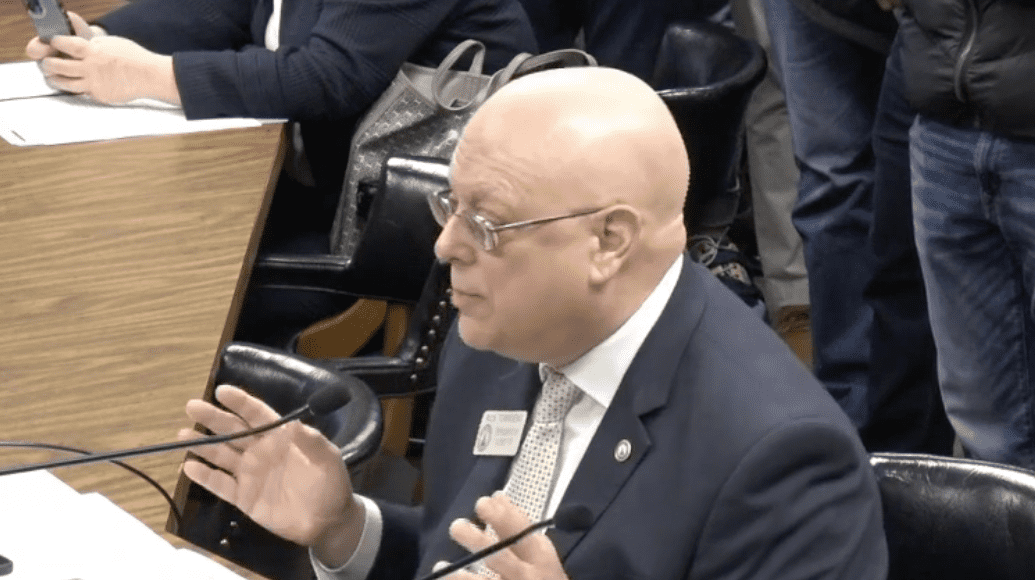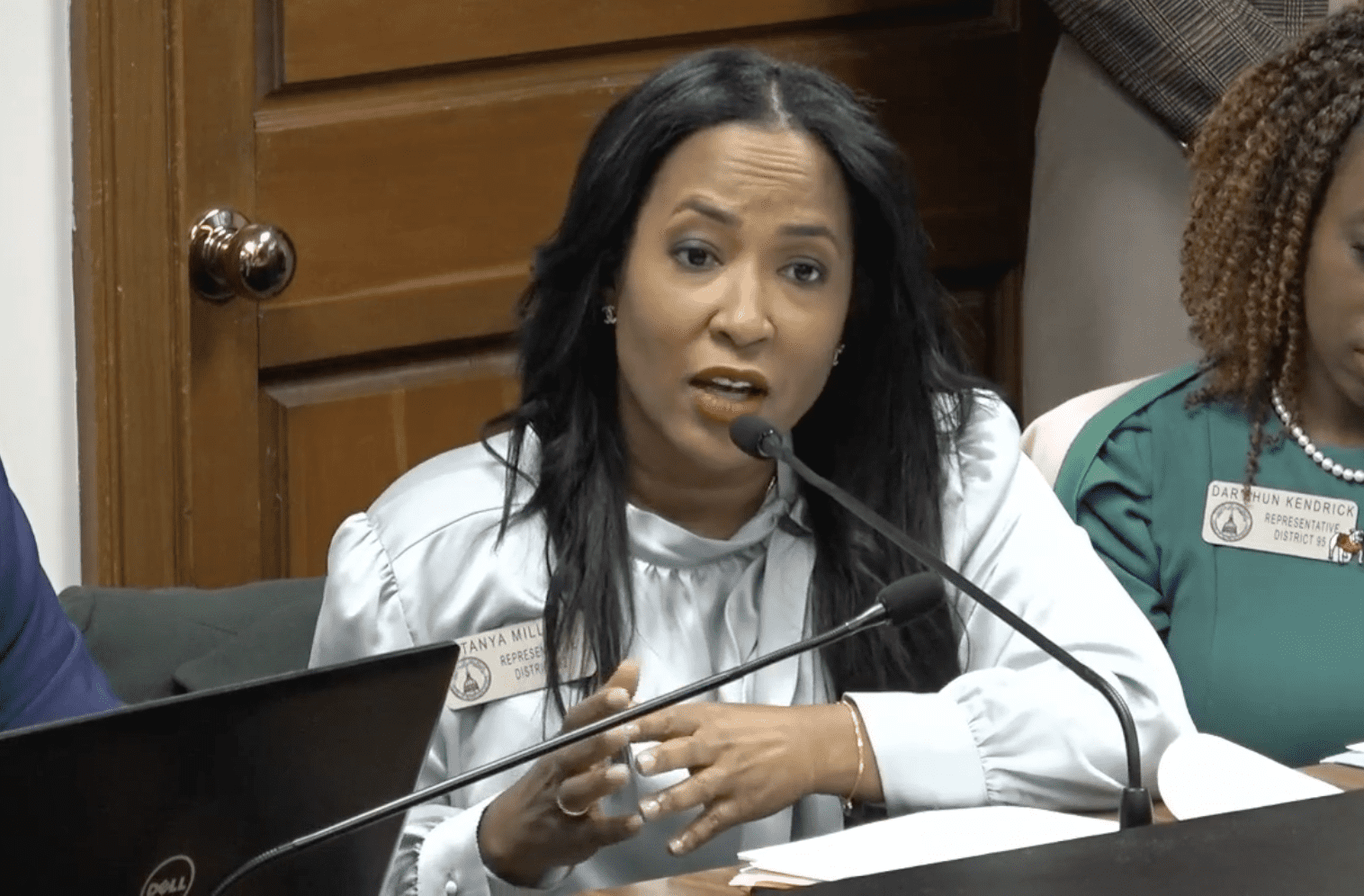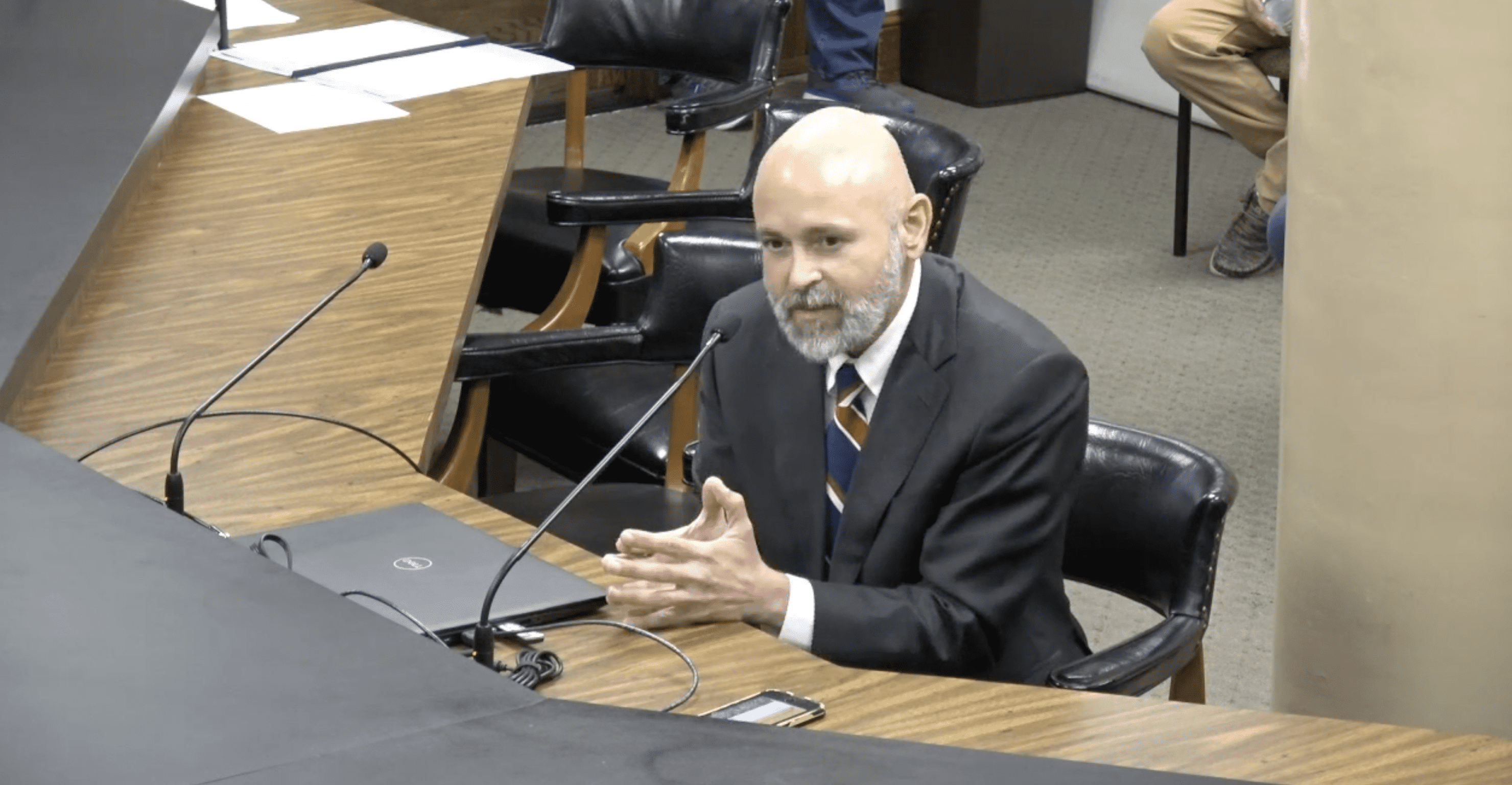On February 13, 2023, Representative Rick Townsend presented House Bill 181 to the Judiciary Non-Civil Committee of the Georgia House of Representatives. The bill would make kratom illegal in Georgia and repeal the Georgia KCPA, which was enacted in 2019. The committee hearing to deliberate the Georgia kratom ban lasted nearly four hours.
Disclaimer: We recognize that as kratom tea manufacturers, we are biased in our position on the benefits of kratom and the legal status that it should maintain. All of the statements about kratom in this article are direct quotations or paraphrases from testimonies given at the Georgia House committee hearing. None of these statements are relayed in order to promote our products or their effects. Top Tree Herbs does not endorse the language or beliefs surrounding kratom or psychoactive compounds discussed by any of the speakers at the hearing.
You can watch the House session on legis.ga.gov, and read our synopsis of the meeting here.
- Should kratom be in Schedule I?
- Kratom pharmacology
- Georgia medical data
- Enforcement of regulations
- Ethan Pope case lawyers’ testimonies
- Status of kratom research
- Georgia KCPA effectiveness
- Effects of a kratom ban in Georgia
Bill & Session Highlights
- HB 181 aims to list “mitragynine and hydroxymitragynine” [sic] as Schedule I substances. This would make the sale or possession of kratom a felony in Georgia.
- Though bill sponsor Rep. Rick Townsend defended the placement of kratom into Schedule I, he spent most of his presentation discussing the improvements needed in kratom regulation. His arguments made it clear that kratom does not meet the criteria for scheduling. The primary issues he cited are quality control and consumer education. Multiple other expert speakers concurred.
- Dr. Geoffrey Smith from the Georgia Medical Examiner’s Office asserted that the level of injury and death associated with kratom is much lower than current Schedule I substances. He believes more research is needed to determine its therapeutic potentials. Forensic toxicologist Dr. Marilyn Huestis explained how kratom pharmacology differs significantly from classical opioids.
- Dr. Gaylord Lopez from the Georgia Poison Center advocated strongly for passing the bill. However, he could not provide conclusive data about the number and severity of issues caused by kratom consumption in Georgia.
- Mac Haddow from the American Kratom Association (AKA) lamented that citations made by his organization have not been acted upon by government bodies like the FDA. He noted that in Georgia, the KCPA bill that was passed in 2019 lacked enforcement provisions. Such provisions could have prevented the continued sale of kratom that doesn’t meet the GA regulatory standards.
- 4 lawyers in the lawsuit filed by the parents of Ethan Pope testified at the hearing. They made false claims about the progress of kratom research and the reason the FDA and DEA decided not to schedule kratom in 2016. The Popes themselves, as well as a few other families, spoke about their relatives’ positive and negative experiences with kratom.
- The Committee moved to table the bill for further deliberation.
How Would the Georgia Kratom Ban be Established?
HB 181 intends to ban kratom by placing it into Schedule I, the highest possible category for restricting the sale and possession of drugs and other substances.
This category is reserved for compounds that have no medicinal value and high abuse potential. Federally, the Drug Enforcement Administration (DEA) and the Department of Health and Human Services (HHS) oversee drug scheduling.
In Georgia, a person who violates the Controlled Substances Act by manufacturing, possessing, or selling a Schedule I substance is guilty of a felony. This means that if the legislature enacts HB 181, a person caught with kratom in Georgia could be sentenced to up to 30 years in prison.

In his introductory remarks, Rep. Townsend focused mainly on quality control and labeling regulations, claiming that both were extremely insufficient. “It’s buyer beware,” he repeated numerous times throughout his presentation. However, he didn’t spend much time explaining why the bill used Schedule I to have kratom banned in Georgia.
On the contrary, Rep. Townsend stated that there is ongoing research on the potential medicinal uses of kratom. Such medicinal value would disqualify kratom from Schedule I.
Kratom Pharmacology
Disclaimer: as a kratom vendor, we are restricted to commercial speech, and cannot make any claims about kratom that have not been verified in controlled human studies. All the studies referenced by experts at the hearing in the following section, and scientific claims drawn from them, have only been done in vitro or through in vivo animal models, which are not necessarily an accurate reflection of how kratom will interact or be processed in humans.
Furthermore, comparisons to other psychoactive substances are steeped in Drug-War rhetoric that do not necessarily reflect the beliefs of Top Tree. Kratom is not meant to treat, cure, or diagnosis any disease or condition, and none of the claims made by the doctors have been approved by the FDA.
How is Kratom Different from Other Opioids?
Dr. Marilyn Huestis, a forensic toxicologist with an MS in clinical chemistry and a PhD in toxicology, provided detailed information about kratom pharmacology. Dr. Huestis worked at the National Institute on Drug Abuse (NIDA) for 23 years.
She enumerated the reasons that millions of people across the globe consume kratom: to reduce fatigue, pain, or anxiety, to avoid opioid use for analgesia, to self-manage withdrawal from other substances, or to just generally improve their well-being.
“Mitragynine is not an opioid.” Dr. Huestis explained. “It has low activity at the µ-opioid receptor, but it also blocks K-opioid receptors, and it activates a large number of other receptors… It has a very different pharmacological profile, has a very different botanical origin…”
What does this difference in receptor activity mean in terms of what people experience when they consume kratom?
Dr. Huestis relayed that experiential evidence suggests that kratom is not causing injury and death in humans due to respiratory depression. Opiates, on the other hand, can fatally slow breathing. However, researchers have not yet studies the various mechanisms of action of kratom alkaloids in humans. To understand the practical implications of kratom pharmacology in humans, they still need to study it further.

Should Kratom be a Schedule I Substance?
A ban on kratom could take many forms, so why place it into the most restrictive category of controlled substances?
Dr. Geoffrey Smith, Chief Medical Examiner for the Georgia State Medical Examiner’s Office, provided data on kratom-related cases reported in the last five years.
“When you think of drugs that are Schedule I right now — heroin, etc. — do you, Dr. Geoffrey Smith, equate kratom to those?” Representative Tanya Miller asked him. Smith’s reply: “The short answer to that is, no.”
What’s the longer answer to Rep. Miller’s question? The number of cases of harm involving kratom is very small relative to those from current Schedule I drugs. Dr. Smith asserted that, “mitragynine pales in significance,” as a cause of death compared to drugs like methamphetamine, cocaine, fentanyl, and Schedule I substances.
…when you think of drugs that are Schedule I right now — heroin, etc. — do you, Dr. Geoffrey Smith, equate kratom to those?” “The short answer to that is, no.
Melissa Ribald, VP of Public Policy at the Georgia Pharmacy Association, spoke about Schedule I alternatives. She advocated for regulation and consistency across products, akin to the regulations in the CBD industry.
Ribald expressed concern that pharmacists who are unaware of kratom and its effects might not be able to properly advise patients on how it would interact with their prescription medications. She suggested they use a register, similar to those used for cough medicines. This would limit the quantity of kratom that retailers could sell to consumers over a certain time period.
Schedule I Alternatives for Kratom Regulation
Representative Soo Hong asked Rep. Townsend to explain the various legislative measures other states had used to ban kratom. He wasn’t able to answer.
Throughout the session, many representatives questioned how they could place kratom into Schedule I without it meeting the scheduling criteria. They also requested advice on alternative options. These include other levels of scheduling or different methods of restriction and regulation.
Yet, Schedule II through Schedule V are meant for pharmaceuticals. Experts explained that any scheduling would effectively ban kratom access in Georgia, because doctors aren’t able to prescribe kratom.
Mac Haddow, Senior Fellow on Public Policy and lobbyist for the AKA, filled in a few of the gaps. He also explained that a couple of states like Rhode Island — where the government had previously listed kratom or its alkaloids in Schedule I — are now introducing the KCPA to replace their bans.
Kratom Medical Data in Georgia
Dr. Smith reported that from 2017 through 2021, there were 239 cases of death in which the state crime lab detected mitragynine. In these cases, examiners found kratom alongside “drugs of abuse” and therapeutic drugs in a majority of cases. Out of all of the cases, they attributed 33 deaths to mitragynine alone. This means that no other pharmaceuticals or other potentially harmful compounds were detected in examiners’ testing.
Dr. Smith mentioned that there may have been comorbidities like diabetes or hypertension involved in these 33 cases. He wasn’t able to certify that kratom itself was the cause of death solely because it was the only substance that examiners found via lab testing.
Dr. Gaylord Lopez of the Georgia Poison Center spoke after Dr. Smith. He reported that from 2018 to 2022, Georgians made around 250 kratom-related calls to the GA poison control system. He also said that nationally, Americans made around 1600 calls in total during a five-year period.
However, Dr. Lopez was not able to provide any deeper information about these 250 cases.
“If a person had been using opioids and kratom, or fentanyl and kratom, or cocaine and kratom, might they just say kratom because that’s the thing that’s legal?” Rep. Miller asked.
Dr. Lopez had not read the reports to determine the factors beyond kratom that may have been involved.. People calling the poison center about kratom could have consumed kratom in conjunction with other substances or medications. They could have had comorbidities that influence kratom’s effects. They also could have claimed that they consumed kratom, despite lab tests that revealed they actually consumed something else.
Like Dr. Smith, he emphasized the need for further research to determine how different amounts (and forms) of kratom affect people. There hasn’t been much research to date on how kratom interacts with other compounds, or how kratom affects people with chronic or acute health conditions.
Labeling Kratom Products
Dr. Lopez then spoke about the lack of proper labeling. Without consistent labeling, people won’t know how their symptoms are related to the amount of kratom they consume.
Unlike most of the other speakers, Lopez claimed that proper labeling wouldn’t improve consumer safety in Georgia. He drew a confusing comparison between kratom and Drāno, the household chemical drain cleaner.
“What are the regulations for labels? Anybody — for example, I could pick up a bottle of Drāno, and there would be perfect labeling instructions on there. But there are some bottles of Drāno that says [sic], you know, take a raw egg, mix it with milk, and drink it. I’m not gonna follow that instruction as a clinician, because that could do more harm than good!”
His analogy isn’t an easy one to comprehend. It’s possible that Dr. Lopez was implying that vendors would be able to embellish their labels and disregard clinical safety information. It’s also possible that Dr. Lopez was accidentally shopping for eggnog in the cleaning-supply aisle.
Regardless, the Georgia KCPA that the House passed in 2019 (HB 551) does stipulate that kratom packaging must have labels which bear, “Clear and adequate directions for the consumption and safe and effective use of such product; and any precautionary statements as to the safety and effectiveness of such product.”

Unlike Lopez, most speakers claimed that labeling problems were related to compliance and enforcement. They argued that proper labeling which complies with the regulations would be effective in reducing harm caused by kratom. However, the lack of enforcement of those regulations has enabled the sale of mislabeled (or entirely unlabeled) products.
One of the lawyers representing the parents of Ethan Pope displayed a number of these products to the committee.
Ethan Pope Case Lawyers Storm the Legislature
Dana and John Pope, parents of Ethan Pope, both spoke at the Georgia kratom hearing. Ethan died in December of 2021. The medical examiner ruled that he died as a result of cardiac arrest and attributed it to mitragynine.
Four of the lawyers representing the Popes in the lawsuit they filed against O.P.M.S. and the AKA joined them at the hearing. O.P.M.S. is one of the largest manufacturers of kratom extracts in the U.S. The first attorney that spoke was Drew Ashby, who claimed that he was receiving numerous calls from families whose loved ones had suffered injury or death related to kratom.
He noted that state agencies may underestimate kratom-related incidents and deaths because medical examiners and hospitals do not consistently test for kratom. Dr. Huestis confirmed that labs may not have been equipped to test for kratom in the past. Many still have to send their samples to reference laboratories.
Attorney Eli Cohen spoke next. He brought along a number of kratom products, and argued that none met the Georgia KCPA guidelines. They also did not meet the standards set by the AKA.
Citing Mac Haddow’s testimony from the 2018 committee hearing, Cohen regarded an O.P.M.S extract shot as “adulterated” because it contains a unnatural amount of 7-hydroxymitragynine. The crew of lawyers said that 7-hydroxymitragynine is one of the most potent alkaloids in kratom. However, experts clarified that it occurs at such low levels that they typically regard it as negligible in its effects.
Matt Wetherington and a fourth lawyer on the case spoke about the options for scheduling kratom. They recommended putting kratom in Schedule II to restrict consumer access until further research is conducted.
Wetherington called Georgia “ground zero” for a future kratom epidemic. He claimed to be working with a lab that is reporting 100 kratom-related deaths per month. This is a hugely far-off number from the data provided by Dr. Smith at the Georgia Medical Examiner’s Office.
Progress of Kratom Research
Drew Ashby claimed that people develop kratom addictions because 7-hydroxymitragynine is 13 times more potent than morphine. He also claimed that the AKA funded all of the studies on kratom safety and efficacy. Ashby then said that the FDA and DEA attempts to ban kratom at the federal level failed due to political interests rather than scientific evidence.
Dr. Huestis rebutted these claims. In 2018, Admiral Brett Giroir, Assistant Secretary of Health at the HHS, withdrew the FDA/HHS request to schedule kratom. He did so, “based on a thorough review of the evidence, new scientific findings, and concerns for unintended public health consequences.” Giroir cited new scientific evidence that kratom has a low abuse potential. He believed it could help people with opioid use disorder to reduce their intake of opioids.
Haddow also informed the committee that the AKA had not funded the studies as Ashby claimed. A partner organization of the AKA had funded only one kratom study. Meanwhile, the National Institute on Drug Abuse has funded tens of millions of dollars worth of studies. The AKA has no connection to these studies. Dr. Huestis and Jack Henningfield, a biomedical and public health scientist, confirmed this.
Henningfield works with NIDA to approve medicines for people with substance use disorders. He mentioned that though some people benefit from pharmaceutical drugs, others do not. Additionally, people may prefer natural alternatives to pharmaceuticals and will thus turn down opioid prescriptions.
DEA, WHO, FDA and NIDA Positions on Kratom
NIDA has been researching kratom for over a decade, he said. The organization considers mitragynine and other active alkaloids in kratom to be models for safer and more effective pain relievers. “Why don’t we know what the lethal dose of kratom is? Because it’s really hard to kill animals with it,” Henningfield stated.
He elucidated the reason that the FDA doesn’t recognize kratom as an effective treatment for any medical issues. The FDA views kratom as a dietary supplement. The agency doesn’t give approval to any dietary supplements, it only approves drugs. He also reiterated that according to the DEA, WHO, and NIDA, kratom does not meet the criteria for Schedule I.
Ashby disparaged the use of animal studies. He stressed that it’s not always possible to understand the effects of human kratom consumption based on those studies. Animal studies are certainly not always translatable to humans (plus, they have been widely criticized for ethical failings). Yet, these issues are not unique to kratom. In fact, up until Congress passed the FDA Modernization Act 2.0 at the end of 2022, all drug developers were required to perform animal testing prior to starting human trials.
Dr. Huestis also responded to this misrepresentation of the progress of kratom research. “We just finished the first study in 198 humans on three different formulations of kratom — four doses — approved by Health Canada (which is their FDA). We had no adverse respiratory depressive events or withdrawal and showed no abuse liability in this study.”

Is Kratom Addictive?
Rep. Miller asked this question to Jack Henningfield, who responded that yes, kratom is addictive. However, he said it may be a benign addiction like coffee. It typically improves people’s lives, unlike other habit-forming substances which interfere with people’s lives. Scientific surveys show that the vast majority of people who have become dependent on kratom can easily manage to stop using it if desired.
Family Stories
In addition to the Popes, a few other speakers provided testimony about family members’ use of kratom as an alternative to other habit-forming substances.
Larry and Anne Rogers stated that kratom was one of the numerous substances their son Wes was addicted to. Anne explained that Wes started abusing alcohol in 8th grade. She believes that he abused numerous substances to cope with anxiety, depression, PTSD, and possibly MS. Wes was using kratom for approximately five years before he sadly passed away due to a cardiac issue at the age of 42, which the Rogers attribute to mitragynine.
Angie and Rick Lizarraga also spoke about her their son. He abused alcohol and Adderall for many years as a result of his manic depressive disorder, Angie said. Even with pharmaceutical treatments, he was unable to stay energized enough to work. He was in and out of rehabilitation programs for 8 years before trying kratom. Angie was initially nervous about introducing him to it, because she wasn’t sure how he’d respond given his medical history. Yet, now that he’s consuming it, he has been sober for 5 years.
Angie herself started using kratom as an alternative to the Tramadol her doctor prescribed for her uterine fibroids. Rick added that he had personally recovered from alcoholism and other substance abuse issues and now consumes kratom.
What all of these stories have in common is a level of uncertainty about kratom and its potential effects. This uncertainty seems to accompany a great deal of kratom consumption in the United States.
Is the Georgia KCPA Effective?
Regulation is one of the major means to reducing such uncertainty. Yet, have kratom regulations been effective thus far in Georgia?
Drew Ashby was one of many speakers who admonished the lack of effectiveness of kratom regulations in Georgia. He claimed that no one has reported citations of any kratom products based on the Georgia KCPA since its enactment. He argued that the AKA recommends kratom vendors on their website that produce products which do not meet the labeling requirements of the bill.
Haddow responded that the AKA has actually reported more than 60 kratom manufacturers to the FDA over the past thirty months. The FDA has issued warning letters to three, and done nothing else to follow up with or penalize the others.
KCPA Enactment in Other States
Ashby also defended the Georgia kratom ban bill by mentioning that West Virginia has filed a similar one. He made it sound as though the Senate had already decided on a West Virginia kratom ban. However, the WV Senate also introduced a regulatory bill (SB 220) in addition to the kratom ban bill, and the WV Senate Judiciary Committee has not yet reported the ban bill (SB 225) to the senate floor.
Ashby failed to mention that Mississippi recently introduced a kratom ban bill, but voted to enact the KCPA instead.
Haddow added that Mississippi, unlike Georgia, included an enforcement mechanism in their legislation.
Haddow informed the committee that when the legislature passed the final version of the Georgia KCPA, they had removed provisions for enforcement. This may be why, despite the enactment of the KCPA four years ago, there are still numerous manufacturers and retailers selling kratom products that are in violation of the GA KCPA.
Gas Station Kratom in Georgia
Townsend, Ashby, Wetherington, and many other speakers criticized the fact that Georgians can purchase kratom at gas stations. “They had the kratom stand right there. They had Reese’s bars, Hersheys bars right beside it,” Townsend chided.
Many of the speakers perceived ‘gas station kratom’ as low-quality. A common thought is that the low ticket price may come with the added health costs of inferior testing and labeling. “Why would we let an unproven drug that we don’t really know anything about be on the streets, in our gas stations and be sold anywhere anybody wants to in a completely unregulated, unenforced manner?” Matt Wetherington asked.
What does this demonization of ‘gas station kratom’ say about our perception of kratom users altogether?
Brad Miller, who gave the final testimonial of the session, rebuked this characterization. “This idea to demonize gas stations — that’s extremely elitist and is condescending,” he implored.

Is Kratom Worse for You than Candy?
The above question is rhetorical, and the answer is subjective. Nevertheless, both representatives and lawyers alike compared kratom and candy at least five times throughout the hearing.
Drew Ashby remarked that people would be “up in arms” if Snickers bars were involved in the same number of deaths as kratom, “but the fact that it’s a drug — we have all these questions. It’s a drug that’s sold at the checkout counter next to the Reese’s.”
“The things I buy next to my Skittles shouldn’t kill me if I’m taking some cough medicine,” Eli Cohen followed suit. Chairman Stevens reiterated Cohen’s comment.
Yet, Brad Miller called attention to the fact that there is nothing innocuous about other items bought at a convenience store like cough medicine or candy.
How many people die per year from cigarettes, does anybody know offhand? It’s 400,000; alcohol is 85,000; diabetes is 104,000. So when we talk about ‘I don’t want to have something I can take, when I have my Reese’s Cup at the gas station, that can kill me — well guess what: cigarettes kill, alcohol kills, diabetes kills, and also peanuts in a Snickers bar can kill as well.
Brad Miller
How a Georgia Kratom Ban would Affect Kratom Consumers
Over 200,000 Georgians — approximately 1.8% of residents — consume kratom. Haddow implored the legislature not to criminalize these Georgians, many of whom suffer from severe chronic pain and opioid use disorder.
Dr. Huestis advocated against scheduling kratom because approximately 1/3 of kratom consumers (as documented in both national and international surveys) are using kratom to help reduce their opioid use. She referred to Admiral Giroir’s fear that preventing people from accessing kratom would “escalate the opioid epidemic” and result in many more opioid-related deaths.
John Shinholser gave his boots-on-the-ground perspective on working with recovering addicts in Virginia. He recognized that many people suffering from substance use disorders will trade one addictive drug for another (including prescription opioids like Methadone or Suboxone).
He said that the places where you’ll see huge issues are in the probation and parole systems. People who formerly used illicit substances that now use kratom, who are up on their feet and doing well, would become felons overnight and would be sent back to prison.
Speakers also raised concerns that people would purchase kratom from the black market if legal access was banned. Such products could be far more harmful due to lack of testing for heavy metals and microbiological contaminants, as well as adulteration with opioids and novel psychoactive substances.
“To take away a useful tool from individuals who have the natural right to choose to consume or not consume a product, is not only evil it’s un-American. Because America was founded on the idea that each individual has the natural right to consume or not consume, to produce or not produce,” Miller asserted.
Georgia HB 181 Committee Decision
Representative Matt Reeves moved to table the bill for further discussion amongst representatives, experts, and council. Updates on the progress of this bill will be provided as soon as possible.
More Resources
- Read the latest available version of HB 181
- View more posts on kratom legality in Georgia and other states
- Follow the bill on Legiscan
- Watch the Georgia kratom ban committee session
Images in this article were sourced from the session recording at legis.ga.gov.





